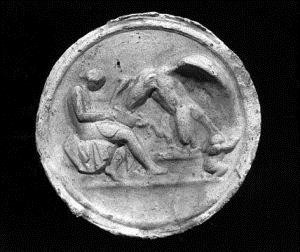 It’s my Birthday (in a couple days, anyway), and I want to thank you for the great Birthday present.
It’s my Birthday (in a couple days, anyway), and I want to thank you for the great Birthday present.
I also want to give YOU a present (Read on to find out how to win some of my paperback books. I’m giving away 65 of them.)
Did you know you gave me a Birthday present?
You did.
What was it?
You read this blog.
Thank you very, very much. You have no idea how much it means to me. (Keep reading to find out how I am celebrating.)
And you know what else? This post is my 2000th post.
Yes, since this blog began, I have written 2000 blog posts!
Below are some other milestones we have passed along the way…
NONE of this is to brag or boast, but just to say thank you for the Birthday presents… Every time you read a blog post, it is like another gift to me. A gift of your time, your eyes, and your mind. Thank you.
The website has received over 3 million pageviews.
I’m getting nearly 200,000 per month now…

The website has received over 23,000 comments.

I have published 12 books.
Click the image below to see my books on Amazon…
More to Come!
I am nearly done with my next book. It is a book on the atonement. The book is done, but I am just working on two appendices, and then it goes into the editing and layout phase…
As always, those who subscribe to my email newsletter will get a free digital copy when it comes out. So make sure you are a subscriber!
Also, I have a super exciting announcement in early September… (So stay tuned).
Get Presents FROM ME for my Birthday
As a way of celebrating my Birthday and my 2000th post, I am giving away over 50 paperback copies of some of my books, plus 15 copies of a book from a friend of mine. So, your chances of winning are pretty good…
Of course, I will not be shipping out over 65 packages… I will make up about 15 “sets” of books, and send those to the winners.
If you want to win free paperback copies of several of my books, enter below: You can enter every day, and the contest is over on September 3, 2015.
[This contest is now over…]
Please share this post using these buttons as well. Thanks!
[easy-social-share counters=1 style=”icon” fixedwidth_align=”center”]
Thanks again for reading, and I look forward to the next 2000 posts!






 If you want to include stories and illustrations to help people understand what you are saying, this is fine to do; just don’t say you are following the example of Jesus.
If you want to include stories and illustrations to help people understand what you are saying, this is fine to do; just don’t say you are following the example of Jesus. Most “Christian” stories are too sanitized to be any good.
Most “Christian” stories are too sanitized to be any good.![[#01] Genesis 1:1 – In the Beginning](https://redeeminggod.com/wp-content/uploads/2015/09/One-Verse-150x150.jpg)




 But why would I want to break it?
But why would I want to break it? If you are not completely confident that what you are praying is what Jesus Himself would pray, this is when it is best to add the little caveat to your prayers of “if it is your will.” This way, in
If you are not completely confident that what you are praying is what Jesus Himself would pray, this is when it is best to add the little caveat to your prayers of “if it is your will.” This way, in 
 Do you want to know why the Eagles cut Tim Tebow? Or why the Patriots and Jets didn’t keep him on their roster? Or why the Broncos traded him?
Do you want to know why the Eagles cut Tim Tebow? Or why the Patriots and Jets didn’t keep him on their roster? Or why the Broncos traded him? If Tim Tebow wants to play in the NFL as a quarterback, here is my recommendation to him: “Tim, stop praying after you score a touchdown. Stop putting “John 3:16” in your eye black. Stop giving thanks to Jesus whenever you win a game.”
If Tim Tebow wants to play in the NFL as a quarterback, here is my recommendation to him: “Tim, stop praying after you score a touchdown. Stop putting “John 3:16” in your eye black. Stop giving thanks to Jesus whenever you win a game.” If God truly raised up Tim Tebow to be an NFL quarterback (which is debatable), then it was not so that Tim could announce his Christian faith by praying in the End Zone and praising Jesus at press conferences. No, God raised up Tim Tebow to be a quarterback so that he can be the best quarterback Tim Tebow can be. Period.
If God truly raised up Tim Tebow to be an NFL quarterback (which is debatable), then it was not so that Tim could announce his Christian faith by praying in the End Zone and praising Jesus at press conferences. No, God raised up Tim Tebow to be a quarterback so that he can be the best quarterback Tim Tebow can be. Period. Here’s the point: Whatever Tim Tebow’s motives might be (and I think they are pure), his prayers on the field tell the world that God hears and answers the prayers of some people more than those of others. This further implies that everybody who doesn’t seem to have the success, money, or fame that Tim Tebow has, must have less faith than Tim, or maybe God just doesn’t love them as much as He apparently loves Tim.
Here’s the point: Whatever Tim Tebow’s motives might be (and I think they are pure), his prayers on the field tell the world that God hears and answers the prayers of some people more than those of others. This further implies that everybody who doesn’t seem to have the success, money, or fame that Tim Tebow has, must have less faith than Tim, or maybe God just doesn’t love them as much as He apparently loves Tim.![[#00] One Verse Podcast Introduction](https://redeeminggod.com/wp-content/uploads/2015/09/One-Verse-at-a-Time-150x150.jpg)
 Welcome to the One Verse podcast, where we liberate Scripture from religion, one verse at a time.
Welcome to the One Verse podcast, where we liberate Scripture from religion, one verse at a time.




 But even if the text is referring to a gay couple in bed, and even if the text does teach about the rapture, I pointed out to him that one of the men was taken in the rapture, which means that apparently, God accepted him.
But even if the text is referring to a gay couple in bed, and even if the text does teach about the rapture, I pointed out to him that one of the men was taken in the rapture, which means that apparently, God accepted him. Immediately before the mention of two men in one bed is a lengthy discussion of the destruction of Sodom. Now I don’t believe the sin of Sodom was homosexuality. But there are many today who believe that it was, and I think most of the Jewish believers in Luke’s audience may have believed it as well.
Immediately before the mention of two men in one bed is a lengthy discussion of the destruction of Sodom. Now I don’t believe the sin of Sodom was homosexuality. But there are many today who believe that it was, and I think most of the Jewish believers in Luke’s audience may have believed it as well. Plutarch (ca A.D. 45 to 120) was born in Greece near Delphi, and was a contemporary of Luke. One of Plutarch’s s, “The Banquet of Seven Wise Men,” is a fictional conversation among some famous men who lived around 650 BCE. After a brief lull in the conversation, Thales of Miletus speaks:
Plutarch (ca A.D. 45 to 120) was born in Greece near Delphi, and was a contemporary of Luke. One of Plutarch’s s, “The Banquet of Seven Wise Men,” is a fictional conversation among some famous men who lived around 650 BCE. After a brief lull in the conversation, Thales of Miletus speaks: A major piece of evidence supporting the thesis of a deliberate gay theme in Luke’s Small Apocalypse (which I call “Luke’s Gay Apocalypse”) is found in the two primary symbols of Zeus, the supreme god in Roman religion. The symbols of Zeus are the lightning bolt and the eagle, and they appear in Luke 17:24, 37.
A major piece of evidence supporting the thesis of a deliberate gay theme in Luke’s Small Apocalypse (which I call “Luke’s Gay Apocalypse”) is found in the two primary symbols of Zeus, the supreme god in Roman religion. The symbols of Zeus are the lightning bolt and the eagle, and they appear in Luke 17:24, 37. According to the story, the attractive young Ganymede is abducted by an eagle, who in one version is Zeus himself, having transformed himself into an eagle. While the story had several uses (as a paradigm for imperialism and an allegory for Truth), in the Roman era the sexual nature of Ganymede’s relationship with Zeus was widely recognized.
According to the story, the attractive young Ganymede is abducted by an eagle, who in one version is Zeus himself, having transformed himself into an eagle. While the story had several uses (as a paradigm for imperialism and an allegory for Truth), in the Roman era the sexual nature of Ganymede’s relationship with Zeus was widely recognized. What we have here are the two chief symbols of Zeus, lightning and eagles, one of which is vividly associated with Zeus’ same-sex relationship with Ganymede, located at the beginning and end of a discrete unit of the third gospel, Luke’s Small Apocalypse. That distance between the verses may seem great, and this distance has obscured their historical and cultural connection. But these were the symbols of Zeus. If we were to read a paragraph that opened with a mention of a “crown of thorns” and ended with a “cross,” no one would doubt that the crucifixion was a central element in that paragraph.
What we have here are the two chief symbols of Zeus, lightning and eagles, one of which is vividly associated with Zeus’ same-sex relationship with Ganymede, located at the beginning and end of a discrete unit of the third gospel, Luke’s Small Apocalypse. That distance between the verses may seem great, and this distance has obscured their historical and cultural connection. But these were the symbols of Zeus. If we were to read a paragraph that opened with a mention of a “crown of thorns” and ended with a “cross,” no one would doubt that the crucifixion was a central element in that paragraph.

